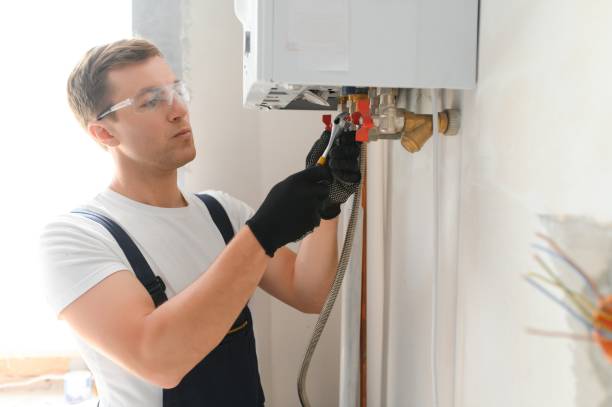
Types of Hot Water Systems: What Experts Recommend
Types of Hot Water Systems
A reliable hot water system is an integral part of keeping your home comfortable. Whether it’s for showering, cooking, or cleaning, having consistent access to hot water is a luxury often taken for granted till something goes wrong. As a Melbourne homeowner, you might be wondering which heater is the right choice for your home in terms of fuel types, energy efficiency, and the types of hot water systems available on the market.
Let’s hear what the experts are saying, from the type of fuel used to efficiency ratings and installation tips, to help you make smarter decisions when it comes to choosing, installing, or maintaining your system.
Keep reading to find out our expert insights on hot water systems.
Fuel Source Affects Performance
One of the first things experts consider when evaluating a hot water system is its fuel source. The most common options in Melbourne include:
- Electric: Widely available and easy to install, but running costs can be high.
- Gas (Natural or LPG): More energy-efficient than electric systems, with lower operating costs.
- Solar: Eco-friendly and cost-effective in the long run, though initial installation is pricier.
- Heat Pump: Uses ambient heat from the air, making it highly energy-efficient.
Each fuel type has its own advantages, so your choice will depend on your budget, household size, and environmental priorities. The key takeaway is that your fuel source significantly impacts the performance, maintenance, and overall efficiency of your hot water system.
Each Type of Hot Water Systems Has Its Pros and Cons
Not all hot water systems are the same. Here’s a quick breakdown:
1. Storage Tank Systems
This is the most traditional option, where water is heated and stored in a large tank. They provide hot water on demand, perfect for larger families or homes with high hot water consumption.
- Pros: Lower upfront cost, reliable supply of hot water.
- Cons: Standby heat loss can increase energy bills, limited hot water if the tank is too small.
2. Tankless (Instant) Systems
These systems only heat water when it’s needed, making them highly energy-efficient and saving space since they don’t require a bulky tank.
- Pros: Endless hot water, energy-efficient
- Cons: Higher initial cost, struggle with high simultaneous demand (e.g., multiple showers).
3. Solar Hot Water Systems
Solar-based systems are gaining popularity thanks to their lower power consumption and high energy efficiency.
- Pros: Reduced energy bills, environmentally friendly.
- Cons: Dependent on sunlight, requires a backup system for cloudy days.
4. Heat Pump Systems
These are energy-efficient systems that work by extracting heat from the air to warm the water.
- Pros: Extremely efficient, lower running costs, environmentally friendly.
- Cons: Higher upfront cost, performs best in warm climates.
When deciding which hot water system is right for you, it’s essential to factor in your home’s size, hot water usage, and budget. Consulting a professional will help you assess whether you need a storage tank upgrade, a tankless system installation, or a heat pump repair and replacement to suit your needs.
Energy Rating Could Tell More About a Heater’s Efficiency
Experts agree that energy efficiency is one of the most important considerations when buying a new hot water system. The more stars a system has, the less energy it consumes, which translates to lower bills. Look for systems with high energy star ratings, as these typically have better insulation and advanced technology to minimise energy loss.
Melbourne homeowners who opt for a heat pump or solar hot water system can typically expect a more favourable energy rating. These systems are designed with sustainability in mind, and while they might cost more upfront, the energy savings over time can be substantial.
If you’re unsure, a qualified professional can recommend the best energy-efficient model for your home.
Tank or Tankless? Whatever Fits Your Needs
Choosing between a tank and a tankless system depends on your household’s hot water usage. Large families may benefit from a storage tank to handle their high demand. A tank system guarantees a large reserve of hot water ready whenever you need it.
Smaller households, on the other hand, might prefer a tankless system for its efficiency and space-saving design. Alternatively, eco-conscious homeowners could opt for solar or heat pump systems.
If your current system isn’t keeping up with demand, it might be time for an upgrade. A professional can help decide whether a heat pump repair and replacement or a switch to a different system is the best move.
Assess Your Space Before Installation
Before installing a new hot water system, consider:
- Available space: Tankless units are compact, while storage tanks need more room.
- Ventilation requirements: Gas and heat pump systems need proper airflow.
- Roof space for solar panels: Ensure your roof gets adequate sunlight.
An expert can evaluate your home’s layout and recommend the best system for your space and needs, ensuring your system runs efficiently without unnecessary complications.
Conclusion
A well-functioning hot water system is crucial for everyday comfort, and understanding your options can help you make the best choice for your Melbourne home. Whether you need a heat pump repair and replacement, a more energy-efficient model, or a system that better suits your household size, consulting with professionals for expert advice is essential.Facing any issues with your current hot water system? Call 0425 671 666 and book a professional hot water service today.

No Comments